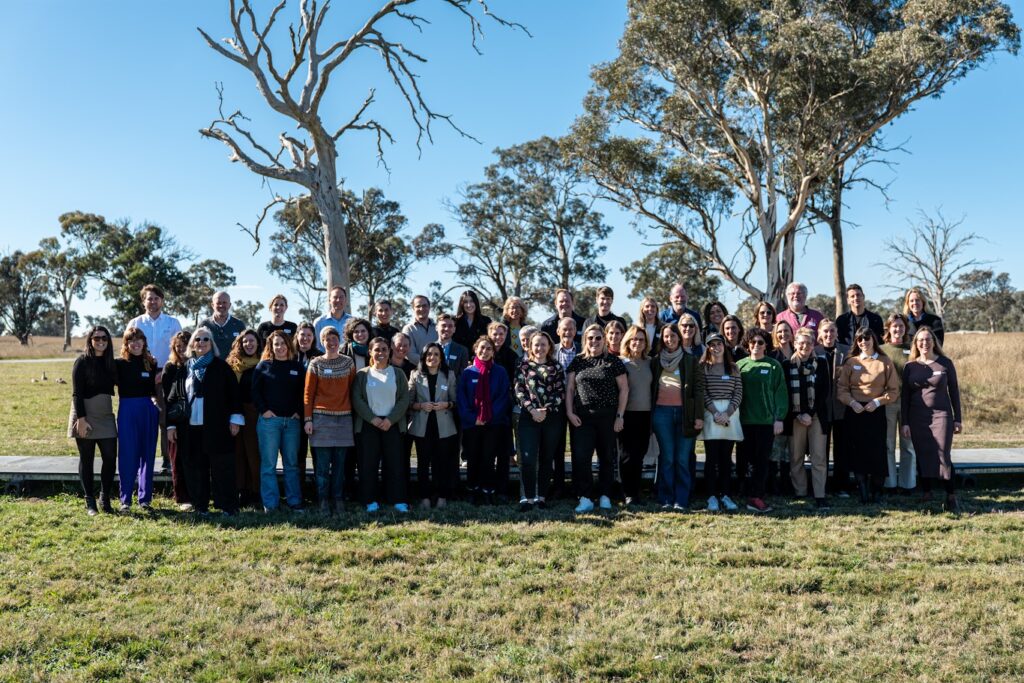
Collaborating to tackle disinformation and protect democracy

A recent report from the Department of Home Affairs, Strengthening Australian Democracy, characterises Australia’s democracy as strong by international standards, but increasingly vulnerable. While this is of course not news to Mannifera members and partners, it is encouraging to see the risks and opportunities we’ve been focusing on for the past five years gain some traction in the public narrative and Federal government agenda.
Among the ‘new constellation of challenges’ to democratic resilience outlined in the report is the rapid spread of misinformation and disinformation that’s proliferating across the world.
While misleading and false information has been a feature of politics for a long time, technology and social media has made dissemination at scale cheap, easy (and profitable); undermining people’s ability to make sense of the world, and eroding trust and social cohesion.
Existing policies and practices are ill-equipped to meet this challenge, setting the stage for discussion and advocacy around what responses will be useful and appropriate in the emerging context.
Improving the quality of public debate has been a focus area for Mannifera since our earliest days, in recognition of the role robust and fact-based dialogue plays in maintaining a healthy democracy. In the wake of the 2023 referendum on a Voice to Parliament it became especially clear that dis and mis-information was undermining the ability of voters to make informed decisions about their collective future. It had also clearly undermined the opportunity for a big step towards justice and self-determination for First Nations peoples, which Mannifera members hold to be core to our work towards a more just and fair society.
As a collective of funders, we were moved to act quickly and decisively with the tools we had at our disposal, our granting capability. We decided to run an open grant round specifically focused on dis and misinformation, to uncover the solutions civil society was focusing on and to support them with the resources to campaign effectively for systemic reforms.
We were interested in ideas tackling the issue on multiple fronts, including advocating for legislative and regulatory reform, conducting research into the source and scale of dis/misinformation, supporting the public to identify it in ways that could be delivered at scale, promoting a healthy and balanced information ecosystem through public interest journalism, and building the capacity of civil society coalitions working across a range of complementary interventions.
Through the grant round process we were delighted to fund seven organisations (shared below), each working on different levers in the fight against dis and misinformation. We were also very pleased to have been approached by another funding organisation outside of our membership, who contributed co-funding as part of this grant round. Together we were able to provide $370,000 to progress the work of these fantastic advocates, however it is worth noting that most projects still have funding gaps. We hope others will consider funding their important work, whether through joining the Mannifera collective and supporting our ongoing partnerships with these and other civil society leaders, or through directly funding the grant recipients shared below.
Despite a historic effort from many in philanthropy to support the Yes campaign last year, advocacy for systems change has been (and remains) dramatically underfunded by the Australian philanthropic sector. In fact, despite the role a strong democracy plays in safeguarding so many fundamental human rights, the work of the fledgling ‘democracy sector’ in Australia is dramatically underfunded.
Many organisations who’ve shown enormous leadership in this space, such as the orgaisations we funded through this grant round, continue to operate on budgets nowhere near commensurate to their ambitious agendas, or the skill, strategic nous and contribution of their leaders.
As a collective of funders supporting a stronger democracy and fair economy through advocacy for systems change, we’ve seen how effective and coordinated our partners can be. The time is ripe for action on a number of issues that will be critical to our democratic resilience, so we invite you to join us in supporting this work.
Dis/misinformation grant recipients
Alliance for Journalists Freedom (AJF) is working to establish Journalism Australia, a professional association for journalists committed to professional standards and ethics. This professional body will be recognised in a Media Freedom Act that AJF is also drafting, which would protect legitimate reporting while distinguishing it from less reliable content, and raise ethical standards that improve public trust. AJF was awarded $60,000.
Australian Democracy Network (ADN)’s mission is to create a thriving democracy in which civil society is robust and vibrant; public debate is informed, fair and diverse; citizens are engaged; and the government is clean, open and accountable. ADN has contracted Scott Ludlam (researcher, author and former Senator) to work with Dr Jermey Walker (UTS) to collate existing research on the main drivers and actors in disinformation. ADN will then present this information to trusted civil society and media stakeholders, using it to shape campaign strategy, policy recommendations and documentary projects. ADN was awarded $50,000.
Australians for a Murdoch Royal Commission (AFMRC) is a movement of everyday Australians taking on NewsCorp’s power over journalism, governments and our future. The Campaign’s work is run by a highly capable team under co-chairs Malcolm Turnbull and Sharon Burrow. Priorities this year include campaigning around a proposed Parliamentary Inquiry, and further research documenting climate change misinformation in the Australian media. AFMRC was awarded $60,000.
Centre for Australian Progress plays a unique role in civil society, building the capacity of social change organisations and movements to advocate and win. Their dis/misinformation effort will leverage Australian Progress’ unique cross-sector positioning and relationships to better understand the mis/disinformation landscape and strengthen digital campaigning, community organising and persuasive messaging skills across civil society. Australia Progress was awarded $40,000.
Digital Rights Watch (DRW) focuses on public education, parliamentary advocacy and research and works collaboratively with other civil society organisations, advocating on issues where human rights and technology intersect. DRW sees online mis/disinformation not as a stand alone problem, but as a symptom of a business model based on virality and microtargeting. They are advocating to secure the best possible privacy laws. They will then run campaigns to inform Australians about their rights, and give them the tools to exercise them at scale. DRW was awarded $60,000.
The Human Rights Law Centre (HRLC) uses strategic legal action, policy solutions and advocacy to support people and communities to eliminate inequality and injustice and build a fairer, more compassionate Australia. HRLC plans to achieve greater alignment among legal and tech experts to ensure there is a shared position about what good reform looks like as parliament considers relevant bills. HRLC will then upskill civil society advocates around this position, to make the public case for reforms in simple terms that cuts through the scaremongering. HRLC was awarded $60,000.
Reset Australia is invested in preventing harm to Australians in online environments – including harm to democracy and public debate. They are advocating around the Combatting Misinformation and Disinformation Bill and the review of the Online Safety Act, with a focus on mandating social media companies to use transparency and accountability mechanisms. Reset is using its research and advocacy expertise on transparency mechanisms to inform policy development as well as the joint committee enquiry on social media. They are doing this work in strong partnership with HRLC, Digital Rights Watch and other coalition partners. Reset was awarded $40,000.
If you'd like to discuss co-funding with us, or have questions about joining our collective, please get in touch with our Director of Engagement and Partnerships, Tambelin Boykin, at tambelin@mannifera.org.au.




